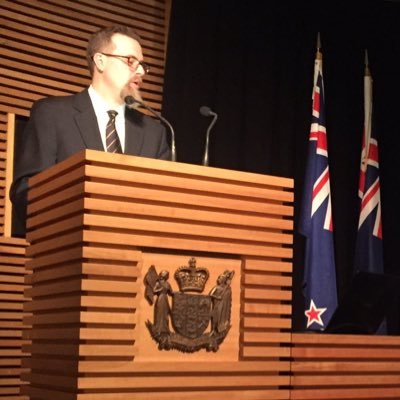The “Inside the PTS Curriculum” series gives you an inside look at what students are learning in their courses at Pittsburgh Theological Seminary. Each article focuses on one class, its subject matter, what students can expect to learn, the required texts, and the kinds of assignments students can expect. We’ll let you know whether the course is required or available for the Master of Divinity (MDiv), the Master of Arts in Pastoral Studies (MAPS), or Master of Theological Studies (MTS). Each article will include the professor’s bio.
This week’s course is: “Police, Prisons, and the Justice of God.”
About Police, Prisons, and the Justice of God
During this term, Pittsburgh Theological Seminary students are learning about public theology and criminal justice with Dr. Derek Woodard-Lehman in the class “Police, Prisons, and the Justice of God.” This course is available for students in the Master of Divinity (MDiv) degree, Master of Arts in Pastoral Studies (MAPS), and Master of Theology (MTS) degree programs.
One of the most pressing issues in contemporary American public policy and public theology is policing and imprisonment. Some are convinced that “law and order” must be maintained at all costs. Others are convicted that this same law and order constitute a “criminal injustice system” that is nothing other than a “new Jim Crow.” This course engages these debates, examines them in historical and social context, and elaborates a theological response rooted in the resources of Christian dogmatics, ethics, and politics—especially as expressed in global Reformed traditions of resistance to domination.
By the end of the course, students will be conversant with biblical and theological principles for public theology, especially Reformed Christian conceptions of state and society, law and order, public justice and the common good, just war and political violence. Students will be able to articulate the history and theology of Reformed Christian social criticism, civil disobedience, and political resistance. They will be able to interpret Scripture in order to construct norms, principles, and ideals for criminal justice within their own congregational and community contexts. They will also be conversant with history, philosophy, and sociology of modern American criminal justice and will be able to articulate the place of public witness and social ministry within their vocational identity.
In addition to attendance and participation, assignments include a roundtable discussion focused on assigned texts and themes, two short (2,000-2,5000 word) essays, and a final project that may take the form of a traditional term paper (7,500 words) or a creative project.
Required reading includes Michelle Alexander, The New Jim Crow: Mass Incarceration in the Age of Colorblindness; Heather MacDonald, The War on Cops: How the New Attack on Law & Order Makes Everyone Less Safe; Naomi Murakawa, The First Civil Right: How Liberals Built Prison America; John Pffaf, Locked in: The True Causes of Mass Incarceration and How to Achieve Real Reform; Patrick Sharkey, Uneasy Peace: The Great Crime Decline, the Renewal of City Life, and the Next War on Violence; and Franklin Zimring, The City That Became Safe: New York’s Lessons for Urban Crime & Its Control.
About the Instructor
Dr. Derek Woodard-Lehman is lecturer in theology and ethics at Pittsburgh Theological Seminary. After studying at Messiah College, he received an M.A. from Geneva College, an M.Div. from Duke Divinity School, and a Ph.D. from Princeton Theological Seminary. A senior fellow of The Louisville Institute, he has previously taught at Lutheran Theological Seminary and the University of Otago in New Zealand. He has published many book chapters and journal articles about such topics as nonviolence, race, and Barthian theology and ethics. He speaks and lectures frequently at conferences, colleges, and churches.

